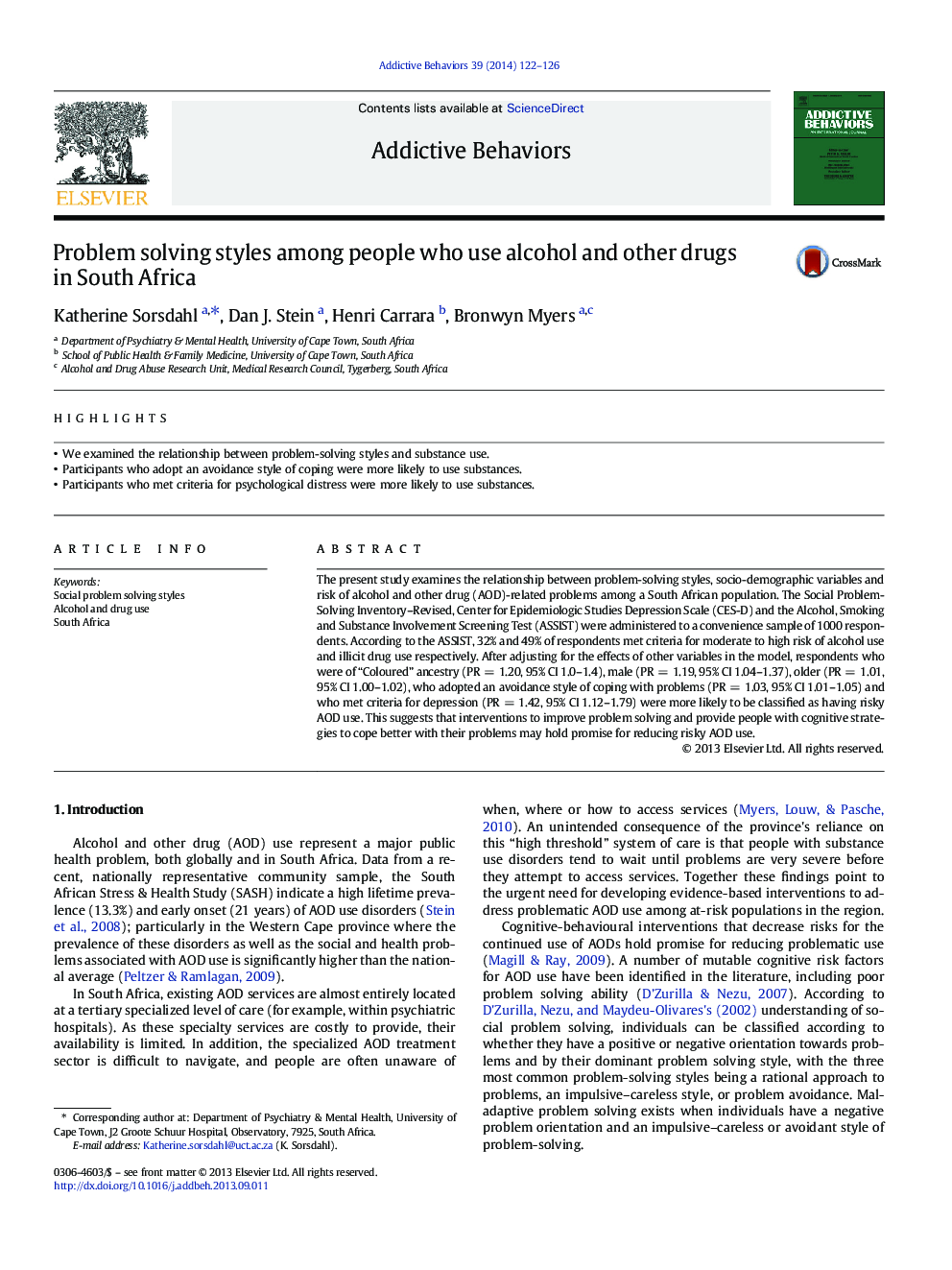| Article ID | Journal | Published Year | Pages | File Type |
|---|---|---|---|---|
| 898982 | Addictive Behaviors | 2014 | 5 Pages |
•We examined the relationship between problem-solving styles and substance use.•Participants who adopt an avoidance style of coping were more likely to use substances.•Participants who met criteria for psychological distress were more likely to use substances.
The present study examines the relationship between problem-solving styles, socio-demographic variables and risk of alcohol and other drug (AOD)-related problems among a South African population. The Social Problem-Solving Inventory–Revised, Center for Epidemiologic Studies Depression Scale (CES-D) and the Alcohol, Smoking and Substance Involvement Screening Test (ASSIST) were administered to a convenience sample of 1000 respondents. According to the ASSIST, 32% and 49% of respondents met criteria for moderate to high risk of alcohol use and illicit drug use respectively. After adjusting for the effects of other variables in the model, respondents who were of “Coloured” ancestry (PR = 1.20, 95% CI 1.0–1.4), male (PR = 1.19, 95% CI 1.04–1.37), older (PR = 1.01, 95% CI 1.00–1.02), who adopted an avoidance style of coping with problems (PR = 1.03, 95% CI 1.01–1.05) and who met criteria for depression (PR = 1.42, 95% CI 1.12–1.79) were more likely to be classified as having risky AOD use. This suggests that interventions to improve problem solving and provide people with cognitive strategies to cope better with their problems may hold promise for reducing risky AOD use.
